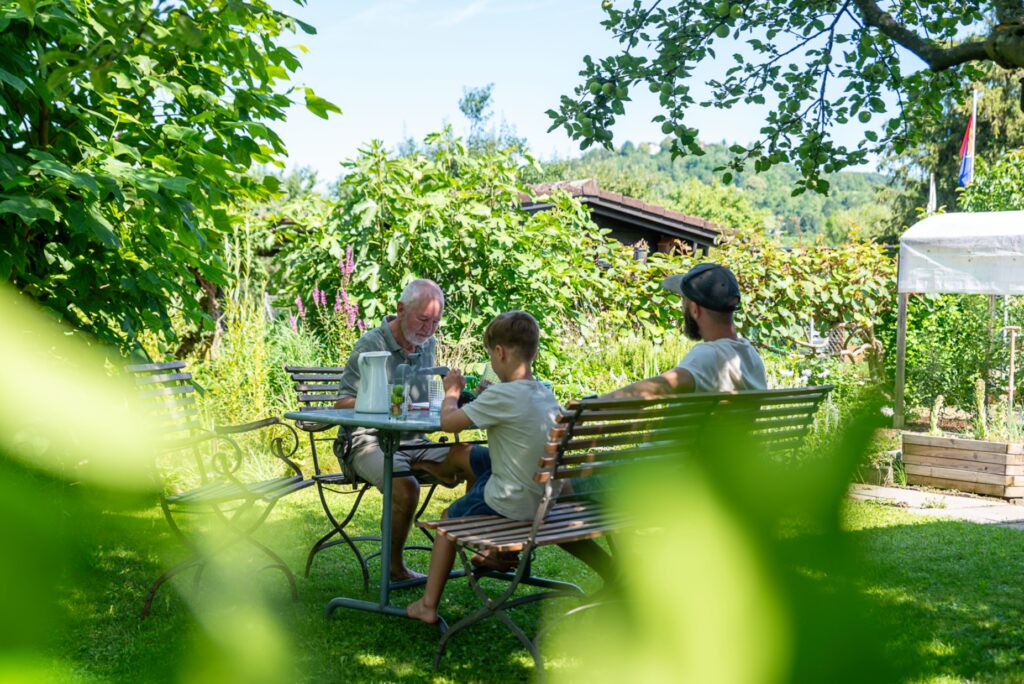
Did you know that the City Nursery (Stadtgärtnerei) in Basel offers guidance on starting and maintaining a garden?
Additionally, it provides valuable insights into biodiversity and sustainability. We had the opportunity to speak with Dr. Karin Kook, a member of the City Nursery Basel’s management board.
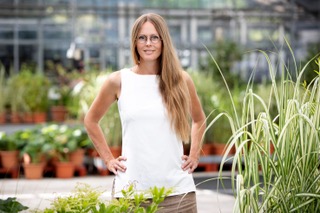
Karin Kook, a young child, would pluck leaves and seeds from plants to propagate them. Little did she know that her seemingly innocent act would later have a profound impact on the greenery of Basel City. Her work encompasses strategic development, spatial planning, and environmental education.
The City Nursery oversees all green public spaces and green infrastructure within the city of Basel, including trees, parks, gardens, cemeteries, and playgrounds. The Basel allotment gardens play a crucial role in achieving ecological balance within densely populated areas. By purifying the air and mitigating the summer heat, they significantly contribute to the cooling of residential neighborhoods.
“While we provide allotment gardens, weekend gardens, and community gardens, even small backyards or balconies can create significant ecological niches. Animals and plants swiftly find refuge in such spaces.”, explains Kook. The City Nursery collaborates with various other departments, including the Amt für Umwelt und Energie, the Health Department, and the Presidential Department.
What is a community garden?
If you’re interested in growing your own herbs, berries, and vegetables, an allotment, a weekend, or a community garden would be perfect for you. Even if you don’t have your own property available, don’t worry—you can lease one of these places.
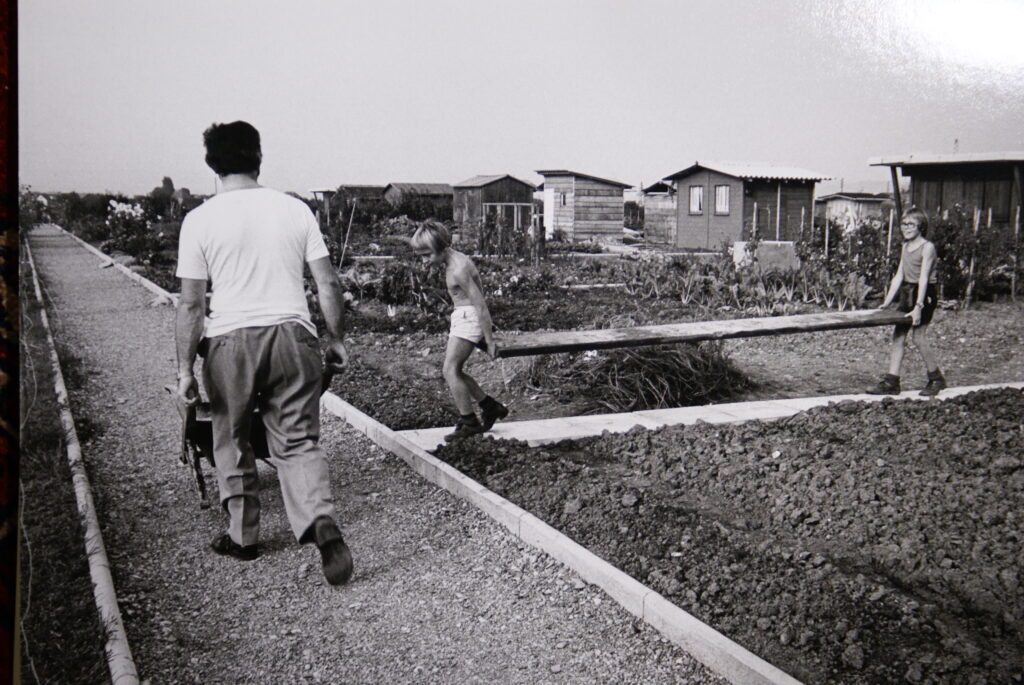
City Nursery in numbers
- 5100 allotment gardens
- Over 100 years
- Over 200 volunteer tenants are currently involved in their associations of allotment gardens
- 32 areas with allotment gardens
- 26 compost associations
- 1 community garden
The city nursery leases 5,100 parcels, which are divided into 32 associations. There are also community gardens located on public areas. All of these areas have access to water, but electricity is not provided. Each area must be managed exclusively according to the principles of organic farming. Allotment gardens are approximately 200 square meters in size and require daily maintenance. On the other hand, weekend gardens are larger and allow overnight stays. To ensure that this task is manageable, it is recommended to allocate at least one hour per day for garden management. For individuals with limited time, community gardens offer a more suitable option. In community gardens, an association leases a designated area. The planning, labor, and harvesting responsibilities are shared among the members.
So what does the garden consulting do exactly?
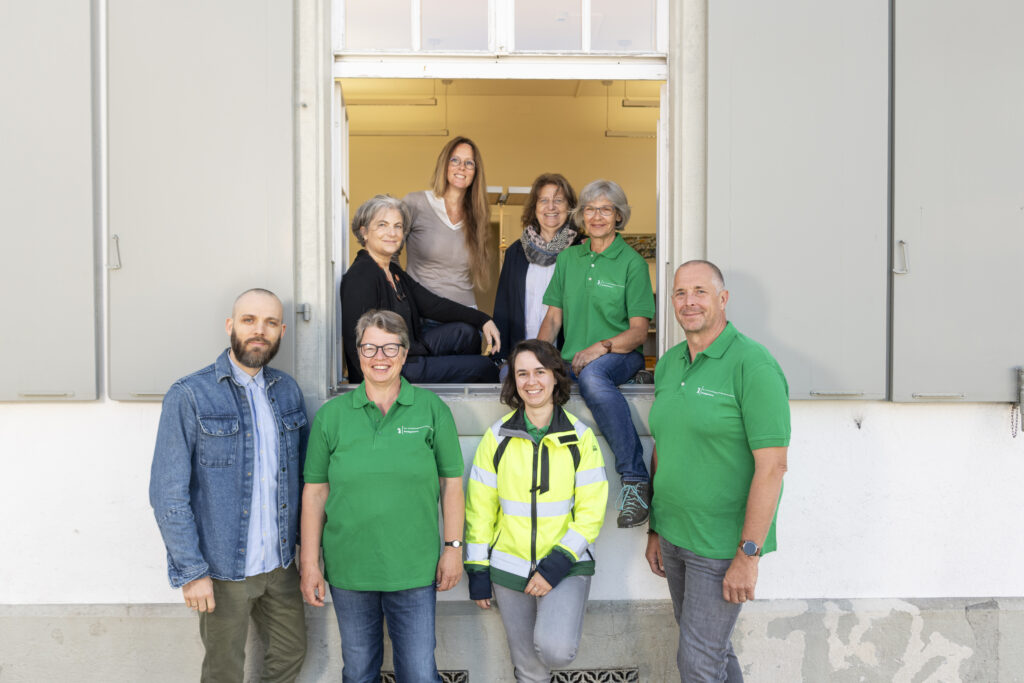
Garden consulting, a service offered to City Nursery tenants, aims to revive the declining knowledge of food cultivation. Kook emphasizes the importance of prioritizing food cultivation in the gardens and providing courses on various aspects. These courses cover planting fruit trees, pruning techniques to maintain their health and fruit production, and composting methods to convert organic material into valuable fertilizer. Additionally, the garden counseling service provides information on invasive neobiota, which are introduced species that can pose problems by displacing native species, jeopardizing harvests, or causing health issues.
“Garden consulting in Basel is not a recent trend,” Kook explains. “However, with the shift in the types of plants being cultivated, the advice we offer has undergone substantial changes,” she adds.
During World War I and II, the gardens were constructed and dedicated to food production, with half of each parcel allocated to potatoes because they provided the highest calorie yield per square meter. Subsequently, when food was abundant, the transition from food gardens to flower gardens occurred. Around the 2000s, the community slmost lost interest in this practice. Nevertheless, there has been a sudden resurgence in interest in both private and community gardens during and after the 2020 pandemic.
The City Nursery outlines the process of leasing a garden space, including the time commitment and essential details. For allotment or weekend garden leases, two mandatory courses are required. These courses cover topics such as location, costs, maintenance, organization, and organic gardening. If you’re interested, you can register for these courses on the website of the City Nursery.
“Today, crop diversity in gardens / in horticulture is needed more than ever.” Climate change is visibly altering the usual environmental conditions. Some traditional plants are less able to cope with this. Crop diversity ensures that we always have some plants from which we can harvest our food.
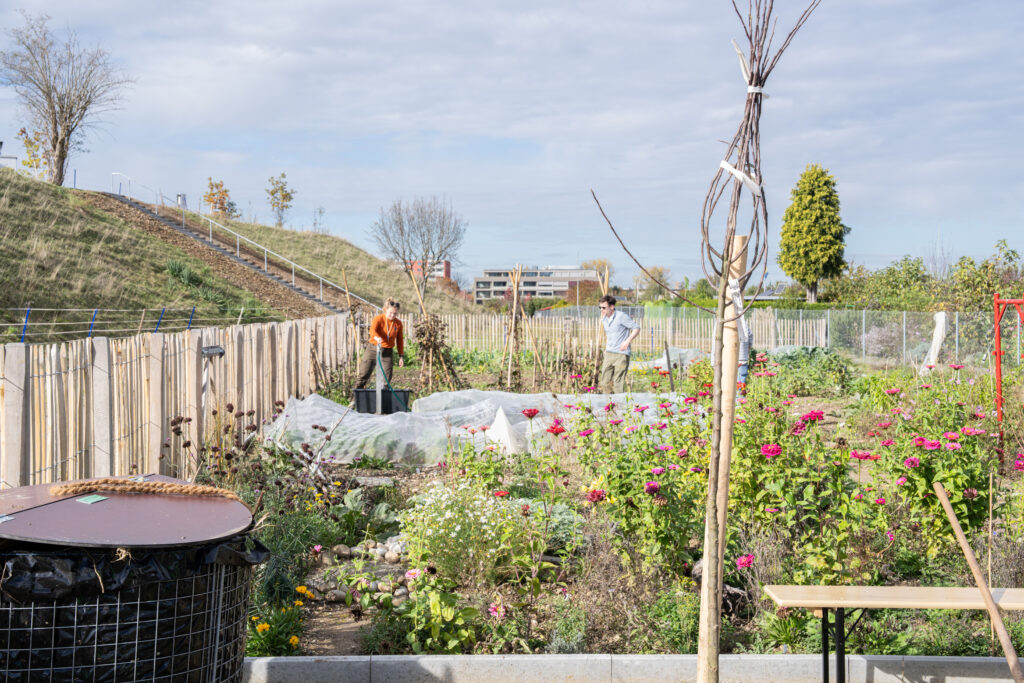
The new community garden spans nearly 600 square meters. The municipal garden center constructed the infrastructure, including plowing the area, bringing in compost and soil, installing two water connections, and erecting a picket fence. Notably, the former compost mobile has been repurposed as a clubhouse. To mark the garden’s opening in October, the City Nursery kindly donated an apple tree to the association. Moving forward, all responsibilities for the garden’s maintenance and development will be shared by the members of the new association.
The surrounding area is grazed by sheep several times a year. The presence of these peaceful animals contributes to biodiversity in the region, delighting both gardeners and walkers alike.
In 2025, the goal is to expand the community garden model by activating two to three more community gardens. Three potential plots have been identified: one near the river “Wiese,” another in Hirzbrunnenquartier, and the third with Bioterra, which specializes in creating gardens for school children.
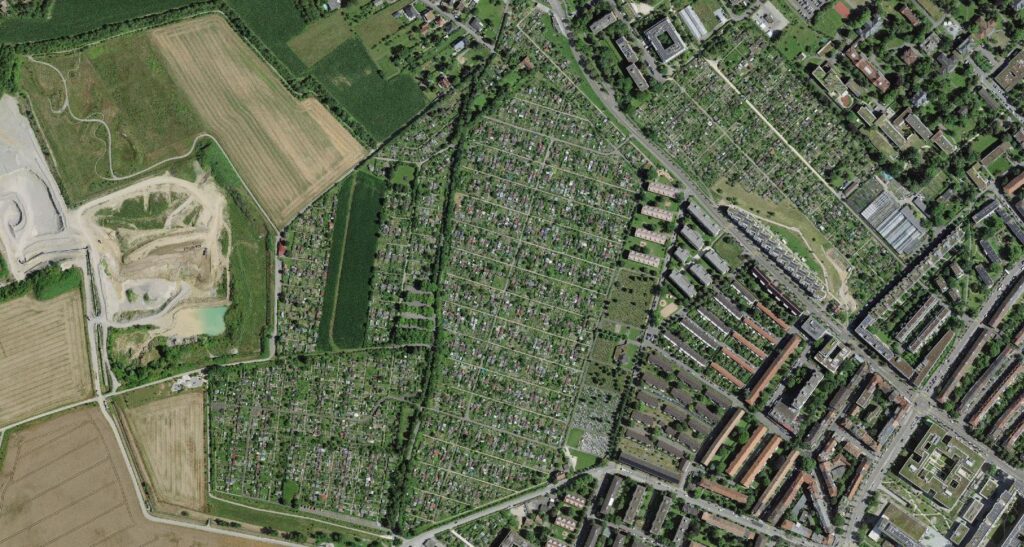
Network of Balcony Gardens
From 2012 to 2018, she managed a Network of Balcony Gardens. However, after joining City Nursery, she had to discontinue that project. Nevertheless, the idea of creating a balcony garden still excites her. She firmly believes that “biodiversity needs structure, and the city provides that structure.”
Depending on the type of plants you choose, you can attract caterpillars that transform into butterflies, bees, and birds that nest in your balcony. The time commitment for gardening can vary from a low-maintenance cactus that requires attention once a month to a vegetable garden that demands daily upkeep. Karin Kook emphasizes that after all, growing food is the most rewarding form of gardening.”
Her hobby, which has evolved into a mission, now compels her to contribute more to society through the dissemination of knowledge. The challenge of transforming balconies into mini biospheres has prompted her to resume teaching a course in April at the Volkshochschule Markgräflerland. She emphasizes the importance of discussing the preservation of our livelihoods, both in our personal and professional spheres. Additionally, she clarifies that we don’t need to protect the climate—nature is doing pretty well withoug us. The ultimate goal is to preserve an environment that enables people to have a good life, where crops can thrive, and ecosystems can regenerate.
“It’s not about hard work. Often, it only requires small and creative steps to do something different today compared to yesterday. We must relearn that ultimately, what’s beneficial for nature is also beneficial for us. Once we grasp this concept, we’ll crave more of it all on our own,” she adds passionately.
Dr. Kook emphasizes the urgent need to prioritize our environment in our daily lives. As urban density increases, the necessity to preserve and even expand green spaces becomes paramount. A century ago, there were 12,000 gardens in Basel; today, we still have 5,100, but the trend is evident: we have less than half that number.
It’s not merely about access to biodiversity; it encompasses health, quality of life, and recovery from illnesses. And for children. “A childhood spent in the village, with free time in nature or the garden – that’s no longer a reality. At the same time, this would serve as the foundation for being receptive to the behavioral changes we urgently need from people worldwide.” She hopes that her work at the City Nursery will ignite an interest in urban gardening, horticulture, and nature, regardless of its form.
Ajita Chowhan
